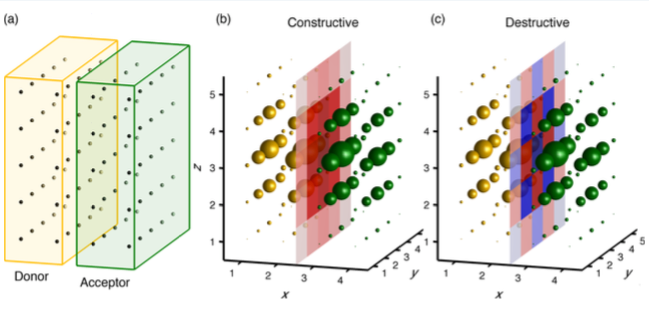Charge Recombination in Heterojunction Materials
We investigate the charge recombination in ordered heterojunctions, which depends sensitively on the degree of coherent delocalization of charges at the donor−acceptor interface. Depending on the relative sign of the electron and hole transfer integrals, such delocalization can dramatically suppress recombination through destructive quantum interference. This could explain why measured recombination rates are significantly lower than predictions based on Langevin theory for a variety of organic bulk heterojunctions. Moreover, it opens up a design strategy for photovoltaic devices with enhanced efficiencies through coherently suppressed charge recombination.
This project is executed in collaboration with the Koster lab in the Zernike Institute.

Key references:
"Charge Recombination Suppressed by Destructive Quantum Interference in Heterojunction Materials", R. Tempelaar, L. J. A. Koster, R. W. A. Havenith, J. Knoester, and T. L. C. Jansen, J. Phys. Chem. Lett. 7:198-203 (2016)
